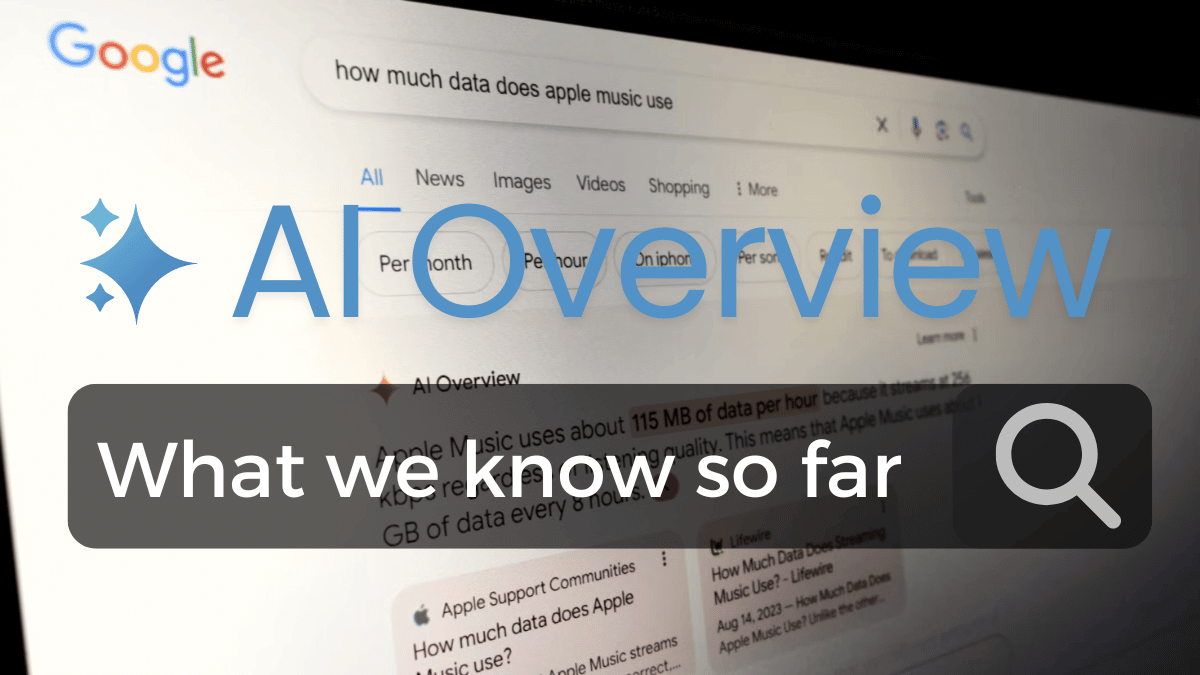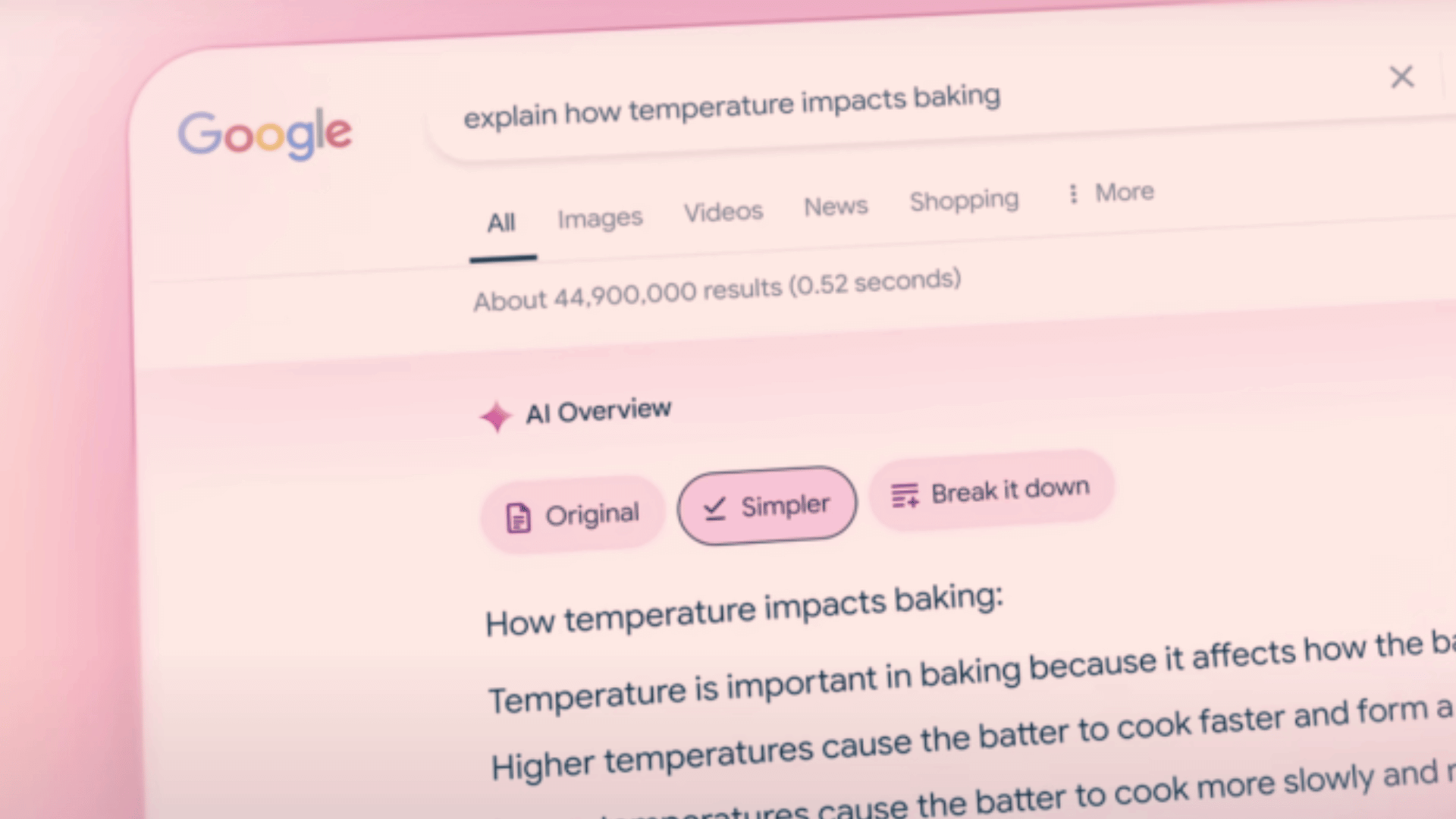
Google hosted its annual I/O developer conference last Tuesday and introduced a series of artificial intelligence products. These include new search and chat features and AI hardware for cloud customers, underlining Google’s insistence on AI even as rivals like OpenAI emerge.
The switch from traditional results based on links to summaries generated by AI reveals a step towards a more intuitive and integrated search experience. Many industry experts have referred to this as the ‘day zero’ of Google search, the information retrieval technology that makes it easy for users to get quick insights into complex topics without having them move away from their initial queries.
Generative AI significantly shifts from traditional keyword-based searching towards more intuitive, context-aware methods. It can generate and comprehend text that sounds human-like, so users get a comprehensive overview of their search queries immediately.
With the help of Gemini, Google’s latest AI model, they aim to revolutionize users’ interaction with search results. To start, Google has introduced AI Overviews (earlier Google SGE), which essentially provides a summary of search results with links for further details, transforming how users search for information on Google.
Building on the capabilities introduced with SGE, Google is pushing the boundaries of AI in search, making it faster, more precise, and exceptionally user-friendly. As AI Overviews roll out to users in the United States with plans for global expansion, casual users and professionals in fields like marketing should notice.
AI Overviews is a new Google search feature that uses generative AI to create quick answers to search queries through a topic preview with links to learn more. Powered by Google Gemini, it combines information from multiple online sources to save the searcher time and provide a general overview – hence the name.
As announced on May 14th, Google began rolling out AI Overviews to US-based searchers, with plans to expand to other countries. Originally introduced as part of the Google Search Labs experiment, Search Generative Experience (SGE), users had to opt into this feature. By the end of 2024, AI Overviews will be available to over a billion searchers.

Here’s a general model of how AI Overviews generate responses:
At one point, an AI summary was produced by about 85% of search queries. However, this trend has undoubtedly reversed, and at present, approximately 14% of searches produce an AI Summary. The likelihood of triggering an AI summary varies considerably across domains, fluctuating between 1% and 25%.
Currently, users cannot opt out of AI Overviews, leading to frustration among some who have flooded Google’s help forums for advice on disabling them. The Google trends chart for “turn off Google AI” spiked over the week that AI Overviews were launched, highlighting widespread discontent.
Given the scale of its release and the extensive amount of Search Engine Results Page (“SERP”) real estate it takes up, SEO professionals are concerned about how it will impact their organic rankings and overall SEO performance.
Traditional page views may be adversely affected when AI Overviews consolidate content, leading to decreased ad revenue and lower content engagement. Based on habits that emerged during the past year’s testing phase of Google’s AI overviews, about 25% of the traffic could be negatively affected by the de-emphasis on website links, said Marc McCollum, chief innovation officer at Raptive. (Source)
In some cases, AI Overviews may be seen for longer-tail queries with transactional intent but only sometimes for short-tail ones. AI Overviews no longer show for local queries based on our sample. However, this might change in the future.
AI overviews are mainly triggered by informational searches, especially those related to procedures or tasks.
AI Overviews are available for authoritative domains such as health, legal, and finance. However, they often come with the recommendation to consult experts in the field and to use the advice at the user’s own risk.
The limited appearance of AI overviews suggests some hesitation from Google in launching a full-scale implementation. Potential reasons include:
LLM SEO / GEO revolves around content optimization for generative engines, which makes it vital for any content creator who desires to succeed in an AI-dominated search scene. Content creators can significantly increase the visibility of their content in artificial intelligence-based searches by employing LLM SEO/GEO strategies.
If you want to learn more about this topic, check out the LLM SEO LeaderBoard. It covers almost all the techniques and hacks that are currently available.
With AI Monitor, you can track how frequently your content appears not only in AI overviews but also on other platforms such as ChatGPT, Perplexity, and others. After adding your website and setting up tracking for your selected prompts, the tool will begin monitoring your site's visibility across nearly every LLM-powered search engine.
AI Monitor Brand Mentions is a fantastic tool for tracking brand mentions in AI summaries across various platforms. It’s like having a spotlight on your content, even if it’s not ranking high traditionally.
In addition to the above, we help marketers track whether AI summaries portray your company as a hero or a villain in a fairytale. AI Monitor analyzes sentiment in AI summaries to ensure that your content is accurately portrayed.
We have also invented a novel framework for analyzing website prominence in AI summaries. Here, we present the “LLM Click Rate (LCR)” score, which is based on several significant metrics weighed by their importance in showing the true exposure of the website within LSE responses. You can learn more about this framework here.
The key point is: don't panic. Most AI responses are aimed at less common, less searched-for queries, which are generally unlikely to have a significant impact on most sites.
Why stress about your website's SEO when you could prioritize these vital queries for your site instead? If you notice AI Overviews appearing for specific queries, aim to become one of the featured sources.
If you want to learn more about how to feature your content or brand on LLM-powered search engines, check out the LLM SEO LeaderBoard, which covers almost all the techniques and hacks known to mankind.
I'm a lawyer and foodie who loves tech, and AI 🤖! For the past 10 years, I have been making law & tech play nice with each other 🤝
Google AI Overviews is a fresh feature that utilizes generative AI to offer quick, summarized answers to search queries. This feature flips the traditional search experience by giving users an entire summary of a SERP page without having to explore numerous links.
These summaries decrease organic website traffic, as people may get all they need from them. Nonetheless, this is also an opportunity to optimize content so that it can be included in summaries produced by artificial intelligence.
AI overviews have the potential of tinting your content with different shades. Through tools like AI Semantic Rating, brands could gain insights and ensure their portrayal in such automatically generated copies is accurate.
Use tools like AI Monitor to monitor the frequency of brand mentions on various platforms to remain updated with how your brand appears in these searches.
LLM SEO, or Large Language Model SEO, involves writing content for generative AI engines. In other words, if an agency can master LLM SEO techniques, then its content will likely be seen more often by those searching for specific information in a search landscape increasingly dominated by AI.
AI summaries can sometimes be based on unreliable information, like a negative review from a customer or a disgruntled employee. It's important to check and make sure the summaries reflect your brand's image accurately.
If an AI Overview is saying negative things about your brand, you can use AI Monitor’s Semantic Rating tools to analyze this feedback. This will help you understand the information being captured and take necessary action to improve how your brand is presented in future AI summaries.
Focus on becoming a prominent source within these AI Overviews. Prioritize increasing the visibility of your content by using tools like AI Monitor and their LLM SEO Leaderboard to stand out among competing content in AI summaries.